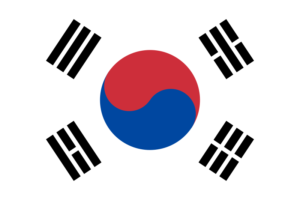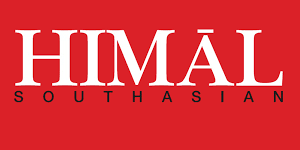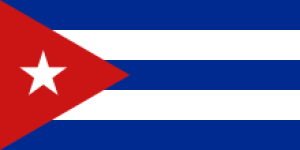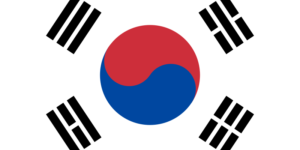South Korea Pivots To Conflict
No Comments yet South Korea’s far-right President Yoon Suk Yeol is rushing South Korea headlong into the middle of the new Cold War that the United States is waging against China. Yoon’s aspiration to position South Korea as a “global pivotal state” is turning South Korea into a bigger cog in the U.S. war machine and stakes South Korea’s security and economic future on a declining U.S.-led global order. Yoon’s support of the U.S. global order has taken him on a flurry of visits and meetings around the world from the virtual Indo-Pacific Economic Framework (IPEF) summit to the NATO summit in Madrid to high-level meetings in Japan and the United States.
South Korea’s far-right President Yoon Suk Yeol is rushing South Korea headlong into the middle of the new Cold War that the United States is waging against China. Yoon’s aspiration to position South Korea as a “global pivotal state” is turning South Korea into a bigger cog in the U.S. war machine and stakes South Korea’s security and economic future on a declining U.S.-led global order. Yoon’s support of the U.S. global order has taken him on a flurry of visits and meetings around the world from the virtual Indo-Pacific Economic Framework (IPEF) summit to the NATO summit in Madrid to high-level meetings in Japan and the United States.
Most recently on his April 26 U.S. visit, President Yoon and U.S. President Joe Biden announced the “Washington Declaration” to deploy U.S. nuclear-armed submarines to South Korea—reintroducing U.S. nuclear weapons to South Korea for the first time in over 40 years. When viewed against North Korea’s development of nuclear weapons as a strategic deterrent, these weapons in South Korea will more likely fuel a nuclear arms race rather than check North Korea’s nuclear program. As former South Korean Unification Minister Jeong Se-hyun observed, four out of North Korea’s six nuclear tests occurred in response to the hardline stance of conservative South Korean administrations that refused to dialogue with North Korea.
Ultimately, Yoon’s actions are putting South Korea on a dangerous path that further destabilizes inter-Korean relations and antagonizes China, its biggest trading partner. All the while, the move also forsakes the Korean government’s duty to advocate for reparations from Japan for Koreans exploited under Japanese colonialism and to prevent the discharge of radioactive waste from the Fukushima nuclear reactor, which lies upstream from South Korea.
Yoon’s ‘Global Pivotal State’
The alarming return of U.S. nuclear weapons to South Korea follows Yoon’s posturing to develop nuclear weapons in South Korea this past January as part of his evolving extremist hardline North Korea policy. More broadly, it forms part of Yoon’s greater foreign policy agenda of inserting South Korea in the security architecture of the U.S.’s anti-China Asia-Pacific grand strategy. The Yoon administration’s “Strategy for a Free, Peaceful and Prosperous Indo-Pacific Region,” like Yoon’s recent activities, follows closely from the U.S. Indo-Pacific Strategy, with the goal of building and enforcing a U.S.-led “rules-based order” in the region with “like-minded allies” to contain China.
For all its declarations of fairness and playing by the rules, this U.S.-dominated “rules-based order” is at odds with the actual multipolar world taking shape around the world as well as the multilateral nature of the internationally agreed-upon UN-based order. The United States has been leading the creation of regional minilateral bodies such as the Quadrilateral Security Dialogue (Quad) or the Indo-Pacific Economic Framework as part of its “hybrid war against China” and engaging in unilateral aggression toward China in the form of “military, economic, information, and military warfare.”
For example, the United States is setting the stage to dispute China’s actions in the South China Sea not through the UN “Law of the Sea Convention,” which the United States has not signed onto, but rather through the Indo-Pacific security framework. This allows the United States to target China’s actions while exempting its own naval operations from the oversight of “global bureaucrats”—i.e., the UN. Furthermore, despite calling for an “open” and “free” Indo-Pacific, the United States is waging a “chip war” by pressuring its Indo-Pacific allies to impede China’s access to semiconductor chips, one of the world’s most critical high-tech resources today.
The Yoon administration has been contributing to the buildup and reinforcement of this “rules-based order” through its participation in the Indo-Pacific framework, global NATO, and by consolidating the U.S.-Japan-South Korea trilateral military alliance. In May 2022, a few weeks into his term, Yoon participated virtually in the IPEF meeting. In December, the administration adopted its own Indo-Pacific Strategy which committed to “stabilize supply chains of strategic resources” and “seek cooperation with partners with whom we share values,”—i.e., IPEF states. South Korea is now being recruited into the U.S. chip war against China.
In June 2022, the participation of South Korea (including Yoon’s establishment of a NATO diplomatic mission) and three other Asia-Pacific states in the NATO meeting expanded NATO’s reach from the North Atlantic into the Pacific. This year, Yoon paved the way toward consolidating the U.S.-Japan-South Korea trilateral alliance by forgoing demands that Japan take responsibility for its colonial exploitation of Korean workers. Then, during his March visit with Japanese Prime Minister Fumio Kishida, he resumed the controversial 2016 General Security of Military Information Agreement (GSOMIA) intelligence-sharing pact, laying the groundwork for direct military coordination between South Korea and Japan.
In April, U.S., Japan, and South Korean officials met and agreed to hold missile defense and anti-submarine exercises to counter North Korea and “promote peace and security in the Indo-Pacific region,” with special emphasis on “peace and security in the Taiwan Strait.” As a further show of commitment to the U.S. global war strategy, in an April 19 Reuters interview, Yoon reversed his position on Ukraine and raised the possibility of sending weapons, and exacerbated the U.S.’s provocations in Taiwan vis-a-vis the One China principle, to the ire of Chinese officials.
A Pivot Toward Peace
Activists in South Korea and abroad have been ceaselessly working toward peace on the peninsula, with key struggles waged along the very sites of U.S. military installations in the Asia-Pacific region encircling China, such as the construction of the military naval base in Gangjeong village. They have also been part of long-standing transnational activism to procure a peace treaty for the Korean War. As these activists and U.S. scholar Noam Chomsky have recently reiterated in the face of the April 26 U.S.-South Korea nuclear weapons deal, only a peace treaty ending the Korean War would lay the basis for denuclearizing the Korean peninsula, bring an end to the U.S. military occupation of South Korea, and move toward peace and stability in Northeast Asia. To continue building greater exchange, dialogue, and solidarity, and pivot the region toward peace, this May 16, Justice Party National Assemblymembers along with the International Strategy Center and other civil society organizations in South Korea, the United States, and Japan will be organizing an International Forum for Peace in Northeast Asia and Against a New Cold War Order.
Author Bio:
This article was produced by Globetrotter.
Dae-Han Song is in charge of the networking team at the International Strategy Center and is a part of the No Cold War collective.
Alice S. Kim received her PhD from the Rhetoric Department at UC Berkeley and is a writer, researcher, and translator living in Seoul. Her publications include “The ‘Vietnamese’ Skirt and Other Wartime Myths” in The Vietnam War in the Pacific World (UNC Press, 2022) and “LeftOut: People’s Solidarity for Social Progress and the Evolution of Minjung After Authoritarianism,” in South Korean Social Movements (Routledge, 2011).
Source: Globetrotter
You May Also Like
Comments
Leave a Reply







